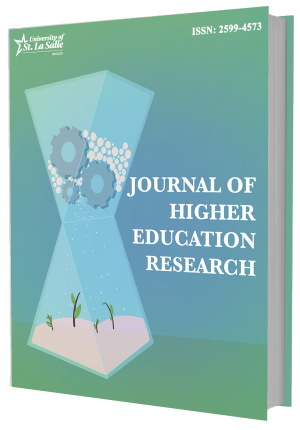Self-Management and Quality of Life: Lived Experience of Elderly Patients with Colorectal Cancer
https://doi.org/10.70228/YJHER2024031
Cite this article Read this article
ABSTRACT
China has become the country with the highest number of new cases and deaths of colorectal cancer (CRC) annually in the world, which seriously affects and threatens the physical health of Chinese residents. This study explored the self-management ability and quality of life of 13 older people who have accepted colostomy surgery for CRC at a tertiary A hospital in Shenzhen, southern China, from 2022 to 2023. To gain a deeper understanding of the participants' motivations, emotions, and self-perception, the study employed a qualitative phenomenological design that included semi-structured, in-depth interviews with participants utilizing an interview guide. The in-depth interviews yielded four main themes and 12 sub-themes, which were determined based on the noteworthy statements and categorized until the point of saturation, namely: (1) psychological reactions, (2) daily life concern, (3) stoma care consideration, and (4) external support. Elderly individuals with CRC who undergo colostomies face a range of physical, psychological, and social difficulties and possibilities.
Keywords: self-management, colorectal cancer, quality of life, colostomy, elderly patients

Volume 11 Issue 1, 2023 EDITION
Published 2023
Editor's Note
Dear Readers, I am delighted to share with you the Volume 11, Issue 1 (2023) of the Journal of Higher Education Research. This issue showcases a compelling collection of studies that address critical topics in nursing education and healthcare, each offering meaningful insights that contribute to advancing both practice and policy. The integration of clinical nursing specialties into curricula is explored in a study by Tan and Chua, emphasizing the importance of aligning education with the demands of modern healthcare. Similarly, Jin and Young study the factors influencing risk cognition among nursing students, highlighting the need for targeted interventions to enhance clinical performance and understanding nursing risk management. The challenges brought by the COVID-19 pandemic are reflected in the work of Qiao and Diva, who investigate the knowledge, beliefs, and practices surrounding hand hygiene among nursing students. Their findings emphasize the importance of reinforcing hygiene practices to maintain healthcare standards during global crises. Meanwhile, the works of Ying and Chua on inter-arm blood pressure differences provides critical insights into prevalence of hypertension and related factors in different groups. In the realm of psychosocial health, Liu and Espinosa examine dyadic coping, perceived stress, and marital adjustment among female cancer patients and their spouses. Their findings shed light on the interplay between personal health and relational dynamics, offering valuable perspectives for psychosocial interventions. Equally compelling is the work of Song and Trajera, which captures the lived experiences of patients undergoing organ transplantation, providing a profound understanding of their challenges and the support they require. Other studies in this issue focus on empowering patients through self-management and improved care pathways. Luo and Trajera document the experiences of elderly patients with colorectal cancer, emphasizing the significance of autonomy in enhancing quality of life. Meng and Trajera, on the other hand, explore the care needs of glioma patients during hospitalization, offering insights into improving symptom management and survivorship care. Lastly, Liu and Cadena investigate discharge readiness and the quality of discharge teaching among diabetic patients, highlighting the level of correlation in terms of discharge readiness and influencing factors for discharge management plan. This collection of studies reflects the diverse and evolving landscape of nursing education and healthcare research. We extend our heartfelt thanks to the authors, reviewers, and the editorial team for their dedication and contributions. It is our hope that these studies inspire new ideas and inform practices that will shape the future of higher education and healthcare. Enjoy your learning through the current issue. Sincerely, JOVAL N. MARTINEZ Editor-in-Chief


